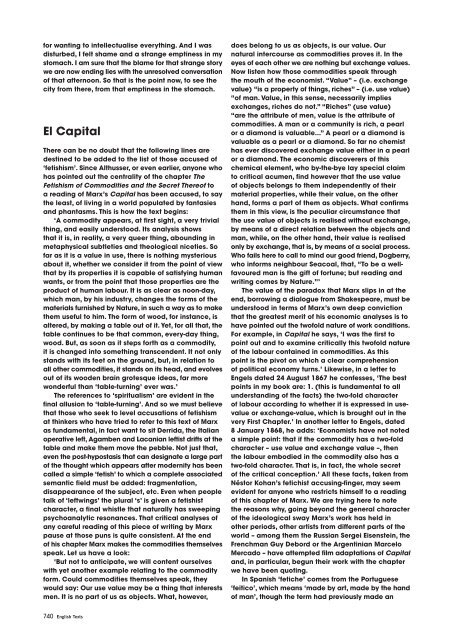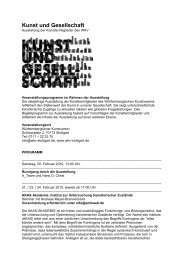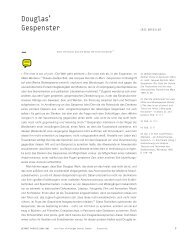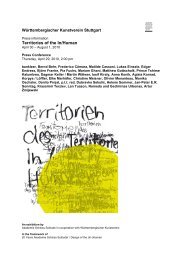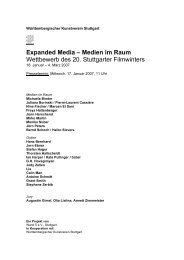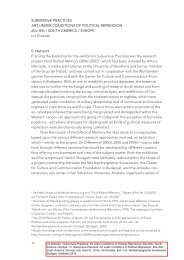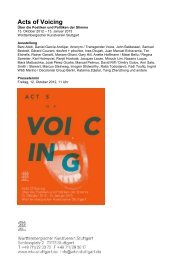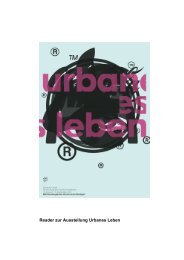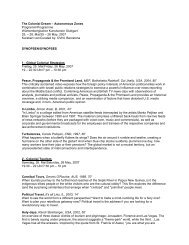English Texts
English Texts
English Texts
You also want an ePaper? Increase the reach of your titles
YUMPU automatically turns print PDFs into web optimized ePapers that Google loves.
for wanting to intellectualise everything. And I was<br />
disturbed, I felt shame and a strange emptiness in my<br />
stomach. I am sure that the blame for that strange story<br />
we are now ending lies with the unresolved conversation<br />
of that afternoon. So that is the point now, to see the<br />
city from there, from that emptiness in the stomach.<br />
El Capital<br />
There can be no doubt that the following lines are<br />
destined to be added to the list of those accused of<br />
‘fetishism’. Since Althusser, or even earlier, anyone who<br />
has pointed out the centrality of the chapter The<br />
Fetishism of Commodities and the Secret Thereof to<br />
a reading of Marx’s Capital has been accused, to say<br />
the least, of living in a world populated by fantasies<br />
and phantasms. This is how the text begins:<br />
‘A commodity appears, at first sight, a very trivial<br />
thing, and easily understood. Its analysis shows<br />
that it is, in reality, a very queer thing, abounding in<br />
metaphysical subtleties and theological niceties. So<br />
far as it is a value in use, there is nothing mysterious<br />
about it, whether we consider it from the point of view<br />
that by its properties it is capable of satisfying human<br />
wants, or from the point that those properties are the<br />
product of human labour. It is as clear as noon-day,<br />
which man, by his industry, changes the forms of the<br />
materials furnished by Nature, in such a way as to make<br />
them useful to him. The form of wood, for instance, is<br />
altered, by making a table out of it. Yet, for all that, the<br />
table continues to be that common, every-day thing,<br />
wood. But, as soon as it steps forth as a commodity,<br />
it is changed into something transcendent. It not only<br />
stands with its feet on the ground, but, in relation to<br />
all other commodities, it stands on its head, and evolves<br />
out of its wooden brain grotesque ideas, far more<br />
wonderful than ‘table-turning’ ever was.’<br />
The references to ‘spiritualism’ are evident in the<br />
final allusion to ‘table-turning’. And so we must believe<br />
that those who seek to level accusations of fetishism<br />
at thinkers who have tried to refer to this text of Marx<br />
as fundamental, in fact want to sit Derrida, the Italian<br />
operative left, Agamben and Lacanian leftist drifts at the<br />
table and make them move the pebble. Not just that,<br />
even the post-hypostasis that can designate a large part<br />
of the thought which appears after modernity has been<br />
called a simple ‘fetish’ to which a complete associated<br />
semantic field must be added: fragmentation,<br />
disappearance of the subject, etc. Even when people<br />
talk of ‘leftwings’ the plural ‘s’ is given a fetishist<br />
character, a final whistle that naturally has sweeping<br />
psychoanalytic resonances. That critical analyses of<br />
any careful reading of this piece of writing by Marx<br />
pause at those puns is quite consistent. At the end<br />
of his chapter Marx makes the commodities themselves<br />
speak. Let us have a look:<br />
‘But not to anticipate, we will content ourselves<br />
with yet another example relating to the commodity<br />
form. Could commodities themselves speak, they<br />
would say: Our use value may be a thing that interests<br />
men. It is no part of us as objects. What, however,<br />
does belong to us as objects, is our value. Our<br />
natural intercourse as commodities proves it. In the<br />
eyes of each other we are nothing but exchange values.<br />
Now listen how those commodities speak through<br />
the mouth of the economist. “Value” – (i.e. exchange<br />
value) “is a property of things, riches” – (i.e. use value)<br />
“of man. Value, in this sense, necessarily implies<br />
exchanges, riches do not.” “Riches” (use value)<br />
“are the attribute of men, value is the attribute of<br />
commodities. A man or a community is rich, a pearl<br />
or a diamond is valuable...” A pearl or a diamond is<br />
valuable as a pearl or a diamond. So far no chemist<br />
has ever discovered exchange value either in a pearl<br />
or a diamond. The economic discoverers of this<br />
chemical element, who by-the-bye lay special claim<br />
to critical acumen, find however that the use value<br />
of objects belongs to them independently of their<br />
material properties, while their value, on the other<br />
hand, forms a part of them as objects. What confirms<br />
them in this view, is the peculiar circumstance that<br />
the use value of objects is realised without exchange,<br />
by means of a direct relation between the objects and<br />
man, while, on the other hand, their value is realised<br />
only by exchange, that is, by means of a social process.<br />
Who fails here to call to mind our good friend, Dogberry,<br />
who informs neighbour Seacoal, that, “To be a wellfavoured<br />
man is the gift of fortune; but reading and<br />
writing comes by Nature.”’<br />
The value of the paradox that Marx slips in at the<br />
end, borrowing a dialogue from Shakespeare, must be<br />
understood in terms of Marx’s own deep conviction<br />
that the greatest merit of his economic analyses is to<br />
have pointed out the twofold nature of work conditions.<br />
For example, in Capital he says, ‘I was the first to<br />
point out and to examine critically this twofold nature<br />
of the labour contained in commodities. As this<br />
point is the pivot on which a clear comprehension<br />
of political economy turns.’ Likewise, in a letter to<br />
Engels dated 24 August 1867 he confesses, ‘The best<br />
points in my book are: 1. (this is fundamental to all<br />
understanding of the facts) the two-fold character<br />
of labour according to whether it is expressed in usevalue<br />
or exchange-value, which is brought out in the<br />
very First Chapter.’ In another letter to Engels, dated<br />
8 January 1868, he adds: ‘Economists have not noted<br />
a simple point: that if the commodity has a two-fold<br />
character – use value and exchange value –, then<br />
the labour embodied in the commodity also has a<br />
two-fold character. That is, in fact, the whole secret<br />
of the critical conception.’ All these facts, taken from<br />
Néstor Kohan’s fetichist accusing-finger, may seem<br />
evident for anyone who restricts himself to a reading<br />
of this chapter of Marx. We are trying here to note<br />
the reasons why, going beyond the general character<br />
of the ideological sway Marx’s work has held in<br />
other periods, other artists from different parts of the<br />
world – among them the Russian Sergei Eisenstein, the<br />
Frenchman Guy Debord or the Argentinian Marcelo<br />
Mercado – have attempted film adaptations of Capital<br />
and, in particular, begun their work with the chapter<br />
we have been quoting.<br />
In Spanish ‘fetiche’ comes from the Portuguese<br />
‘feitico’, which means ‘made by art, made by the hand<br />
of man’, though the term had previously made an<br />
740 <strong>English</strong> <strong>Texts</strong>


